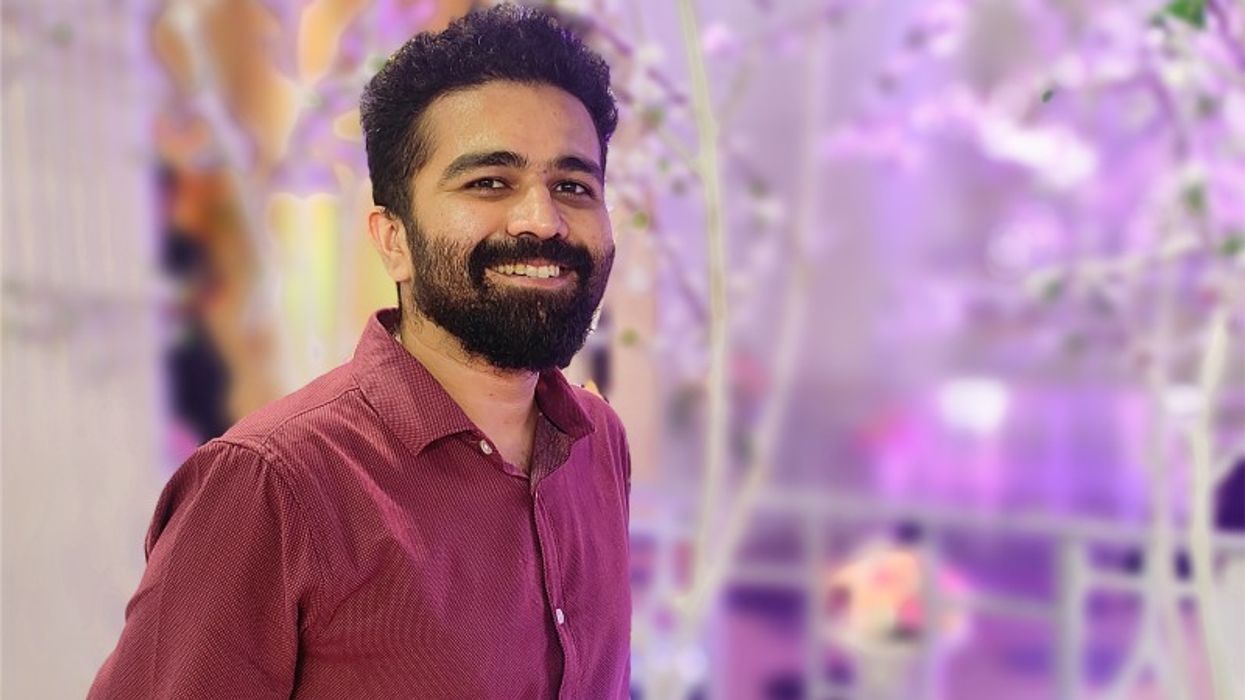An Indian PhD student at the University of Cambridge has solved a 2,500-year-old Sanskrit grammatical problem which, ever since the fifth century BC, has baffled academics.
Rishi Rajpopat, 27, successfully cracked a law created by ancient Sanskrit language master Panini, who lived in India 2,500 years ago.
The Astadhyayi, or grammar of Panini, used an algorithm-like approach to convert a word's base and suffix into grammatically sound words and phrases.
Conflicts happen when two or more of Panini's rules often apply simultaneously. Scholars always believed that the 'metarule' of Panini suggests that when conflicts happen between two rules of equal strength, the rule that comes later in the grammar's serial order wins.
As a result, this assumption often led to grammatically incorrect results.
“I had a eureka moment in Cambridge. After nine months trying to crack this problem, I was almost ready to quit, I was getting nowhere. So I closed the books for a month and just enjoyed the summer, swimming, cycling, cooking, praying and meditating," Rajpopat is reported to have said.
“Then, begrudgingly I went back to work, and, within minutes, as I turned the pages, these patterns starting emerging, and it all started to make sense. There was a lot more work to do but I’d found the biggest part of the puzzle.
“Over the next few weeks I was so excited, I couldn’t sleep and would spend hours in the library including in the middle of the night to check what I’d found and solve related problems. That work took another two and half years.”
According to him, Indian haven't fully understood what their ancestors achieved as some of the most ancient wisdom of the country has been produced in Sanskrit.
Rajpopat completed his Bachelors in Economics from St. Xavier’s College – Autonomous, Mumbai in 2016. He studied Sanskrit language, literature, and linguistics during high school and college years, and then spent a year at the University of Oxford pursuing a Masters in Pāṇinian Sanskrit linguistics.
He began a PhD in the same field at the University of Cambridge in 2017. Rajpopat speaks Gujarati (mother tongue) and Hindi/Urdu with native fluency, is proficient in Marathi, English and Sanskrit, can read Bangla and Punjabi.
“We’ve often been led to believe that we’re not important, that we haven’t brought enough to the table. I hope this discovery will infuse students in India with confidence, pride, and hope that they too can achieve great things," he pointed out.
He now wishes his latest discovery will make it possible to teach Panini’s grammar to computers.
Rajpopat's supervisor at Cambridge, Professor of Sanskrit Vincenzo Vergiani has hailed his achievement.
Prof Vergiani, said: "He has found an extraordinarily elegant solution to a problem which has perplexed scholars for centuries. This discovery will revolutionise the study of Sanskrit at a time when interest in the language is on the rise."





